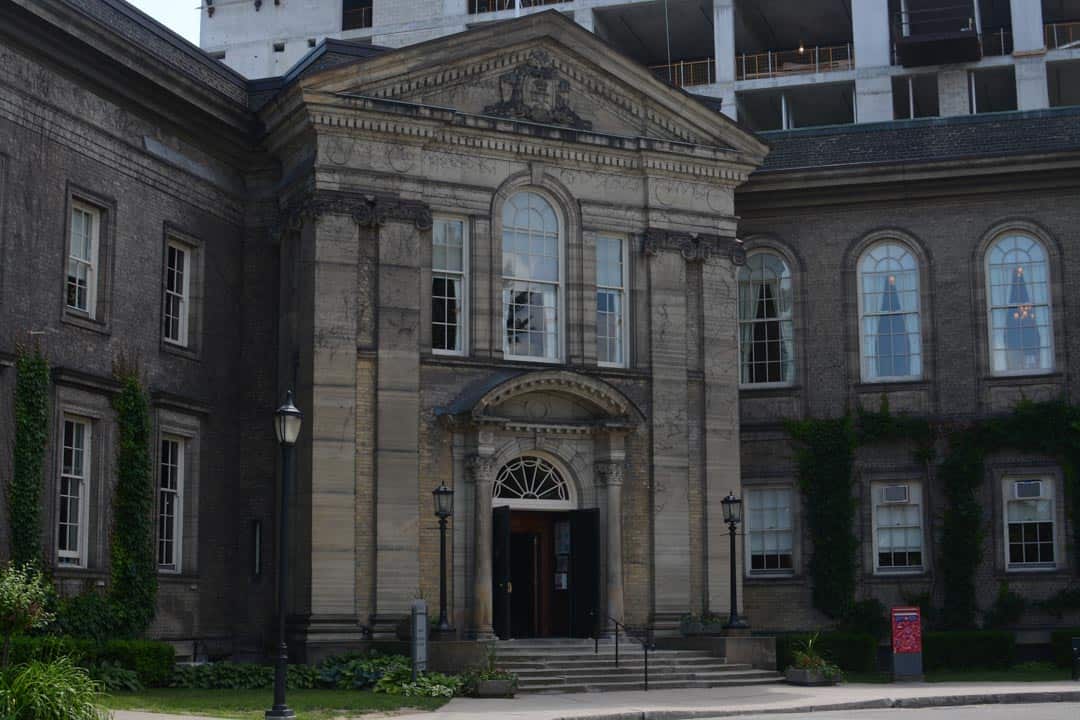The University Affairs Board (UAB) met on September 27 to hear updates on the return to campus, as well as to hear presentations on diversity and Indigenous-centric initiatives.
The board also voted in favour of amendments to the University College Literary and Athletic Society’s (UC Lit) constitution. According to the amendments document, some older student societies require approval from their membership as well as from the UAB if they want to make constitutional changes.
The amendments were approved by the UC Lit during its Annual General Meeting on March 18.
Returning to campus
Vice-Provost, Students Sandy Welsh gave a report on the ongoing return to on-campus learning. She went over the measures the university has taken to make campus safer for in-person activities, including increased ventilation and a vaccination mandate.
She also talked about the university’s quarantine program, which was started in fall of 2020 to help students quarantine before they arrive. According to Welsh, a total of 5,860 students have used the quarantine program since August 2020, including 2,738 that have participated since July 2021.
“In-person activity is crucial to effective learning and students’ mental health,” said Welsh. She later added, “It has really been exciting to see life returning to campus this fall. I know I’ve enjoyed talking to some students and hearing how much they’ve appreciated the opportunity to engage in in-person learning and campus life.”
One attendee asked for updates on a plan to introduce QR codes that community members will have to scan to access buildings. This plan has been proposed as a way of contact tracing in case of positive COVID-19 cases in the community. Welsh said that QR codes have been introduced in specific locations on campus, including the UTM and UTSC shuttle buses, and that the university is working on expanding the program.
Welsh also answered a question about whether spaces where student groups can hold events will be opening up on campus. She said that the university will make spaces available as needed and that the University College Commuter Student Centre will be opening for students soon.
She also noted the “hard work and dedication” of student groups and student life staff, particularly for orientation events. She brought attention to a series of orientation transition events targeted at Black students, including a Black Clubs Fair and specialized welcome events at all three U of T campuses. These events were based on direct recommendations of the Anti-Black Racism Taskforce report.
Equity, diversity, and inclusion report
The board heard a presentation on equity, diversity, and inclusion from Vice-Provost, People Strategy, Equity & Culture Kelly Hannah-Moffat that focused on initiatives the university has undertaken to improve these areas in the last year.
Hannah-Moffat pointed to a number of new toolkits the university created for staff, including one called the Wellness and Working from Home Toolkit and a guide entitled Returning to Campus During COVID-19: Keeping Accessibility in Mind.
She also highlighted a number of task forces and initiatives aimed at addressing racism on campus, such as the Anti-Black Racism Taskforce, the Anti-Semitism Working Group, and the Anti-Islamophobia Working Group.
Laying out the university’s goals for the year, Hannah-Moffat said that her team was planning on implementing the recommendations of the Anti-Black Racism Taskforce Report and the Scarborough Charter, “[advancing] the work of our Anti-Semitism and Anti-Islamophobia Working Groups,” and generally supporting equity work across the university.
Indigenous initiatives report
Hannah-Moffat also gave a presentation on initiatives from the university meant to support Indigenous students and staff. The presentation paid specific attention to the disproportionate effects of the COVID-19 pandemic on Indigenous peoples in Canada.
Hannah-Moffat specifically mentioned new Indigenous-centric spaces on campus, such as the artworks set up at Hart House. She also brought up three new Indigenous spaces across U of T’s campuses, including the Indigenous House at UTSC, the Indigenous Landscape Project at Taddle Creek at UTSG, and the Indigenous Centre at UTM.
Looking forward to the rest of the year, she said that the university had a goal to hire more Indigenous staff and faculty.


